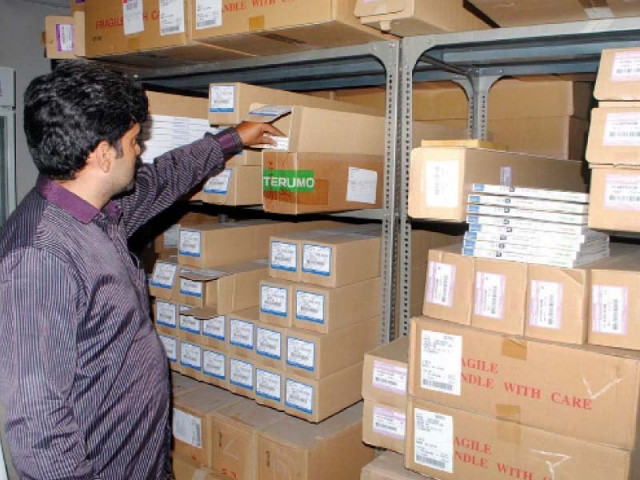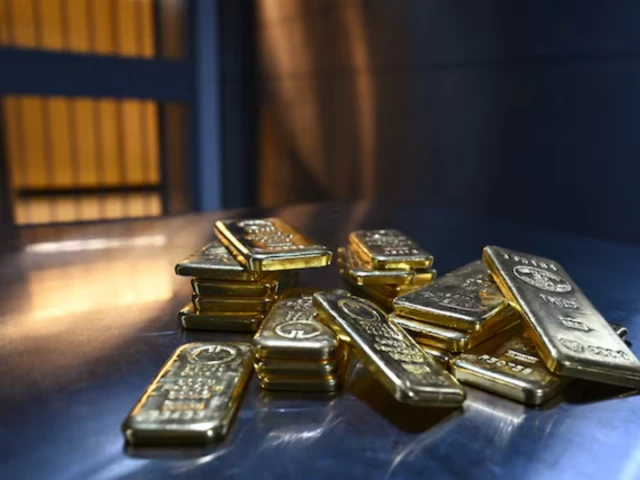Business
Govt seeks private role in shipping | The Express Tribune
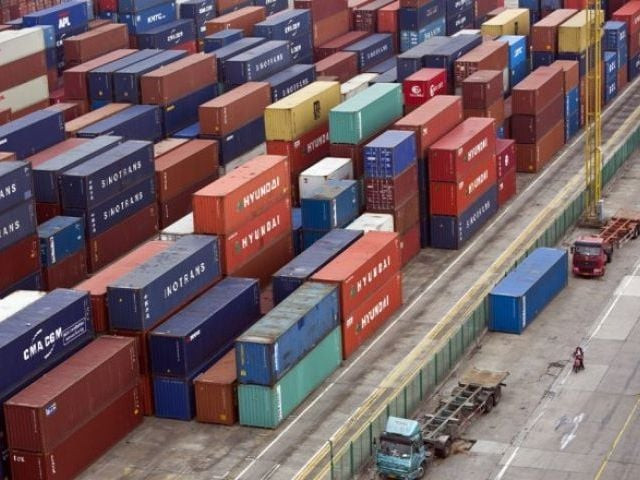
Maritime minister offers 140 acres of port land for industrial park for shipbuilding, shipping ventures
KARACHI:
Federal Minister for Maritime Affairs Muhammad Junaid Anwar Chaudhry has invited the private sector, particularly Karachi’s business community, to invest in Pakistan’s shipping and maritime industry, traditionally dominated by foreign firms and the state-run Pakistan National Shipping Corporation (PNSC).
Speaking at the Karachi Chamber of Commerce and Industry (KCCI) on Tuesday, the minister said the government aims to open up the sector for local investors, offering port land and joint-venture opportunities to develop new shipping lines and terminals. “We have 140 acres of land available where an industrial park can be developed in partnership with the private sector,” he said, adding that the Karachi Port Trust (KPT) is ready to act as a strategic partner whilst the private sector handles operations.
He emphasised that the ministry will no longer allow real estate ventures on port lands, which will be reserved strictly for trade, logistics and industrial purposes. “We will provide land, but it must be used for business — not housing societies,” he stressed.
Pakistan’s business community, particularly in Karachi, has long voiced grievances against foreign shipping companies operating in the country. With the exception of the PNSC, nearly all shipping lines serving Pakistan are foreign-owned, with their headquarters based abroad. These firms handle the majority of the country’s import and export cargo through local agents who, traders allege, often treat them harshly and impose excessive charges.
Business leaders complain that shipping agents levy multiple fees under various heads, including container damage, port delays and demurrage, and pass on all such costs to local importers and exporters. In addition, several foreign shipping companies reportedly charge customers using an exchange rate of Rs297 per US dollar, significantly above the official interbank rate of around Rs280. These rates, displayed publicly on their websites, are said to exceed even the hawala or hundi market rates, further increasing the cost of doing business.
The business community has repeatedly appealed to authorities to address these practices, calling for regulatory oversight to ensure transparency and fairness in shipping operations.
Acknowledging these long-standing issues, the maritime minister has urged local entrepreneurs to invest in the country’s shipping sector. He encouraged businessmen to establish indigenous shipping lines and purchase vessels, assuring that the government would offer port land to investors at fair prices.
The minister urged Pakistani businessmen to form a consortium and launch local shipping companies, noting that “PNSC alone cannot bear the burden of reducing freight costs.” He announced that the government is expanding PNSC’s fleet by 50%, with five new vessels to be added soon, and directed that the target of 30 ships be achieved within one year instead of three.
Chaudhry also outlined plans to develop a Pakistan Maritime Industrial Zone on 700 acres, featuring a shipbuilding yard, steel melting unit and ship-breaking facility. He said the ministry was ready to offer land for both ship-breaking and shipbuilding, on the condition that it would not be converted into real estate.
Business
Over 2.5 crore Aadhaar Numbers deactivated by govt due to…
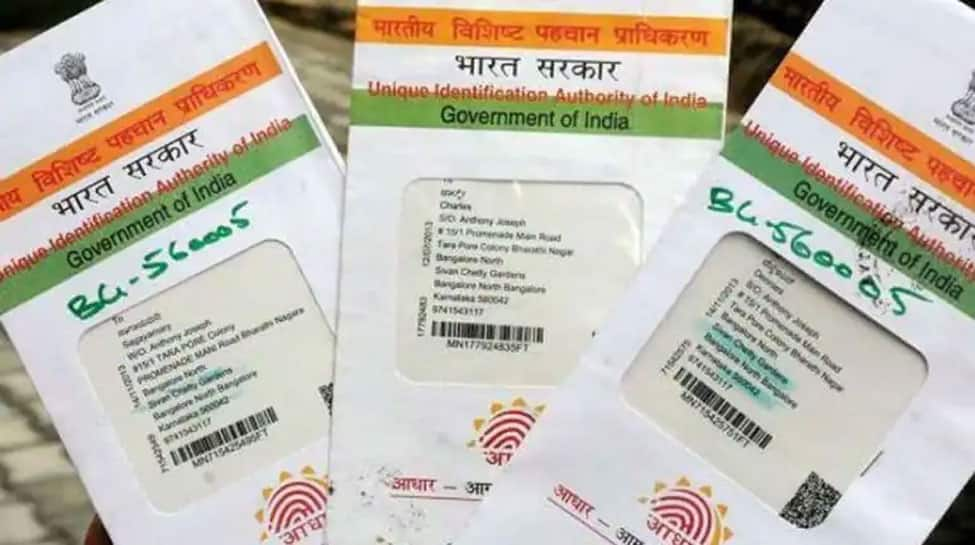
New Delhi: The Unique Identification Authority of India (UIDAI) has deactivated more than 2.5 crore Aadhaar numbers of deceased persons till date. This is as part of a nationwide clean-up effort to maintain the continued accuracy and integrity of the Aadhaar database, Union Minister of State for Electronics and Information Technology Shri Jitin Prasada in Lok Sabha on Wednesday.
Aadhaar is the world’s largest biometric identity system with approximately 134 crores live Aadhaar holders.
In case of the death of a person, it is essential that his/her Aadhaar number is deactivated to prevent potential identity fraud, or unauthorized usage of such Aadhaar number for availing welfare benefits.
The State / UT mentioned in the address of an Aadhaar number holder in the Aadhaar database may vary from the State / UT where death was registered.
Measures to prevent potential identity fraud
Government has said that several measures have been taken to reduce the risk of identity fraud and ensure leak-proof delivery of benefits in the country.
The key measures include:
Biometric Lock/Unlock feature enables an Aadhaar number holder to “Lock” his biometrics, preventing any unauthorized authentication attempts.
Aadhaar Lock/Unlock feature for an Aadhaar number holder.
Deployment of Face Authentication having ‘Liveness Detection feature’ to prevent spoofing and ensure the physical presence of the beneficiary during transactions.
Offline Verification: Promotion of Aadhaar Secure QR Code, Aadhaar paperless offline e-KYC, e-Aadhaar and Aadhaar verifiable credentials for offline identity verification.
No sharing of Core Biometric information of Aadhaar number holders in any manner by UIDAI.
Secure Data Storage: Mandatory use of Aadhaar Data Vaults by all requesting entities to store Aadhaar numbers in an encrypted format.
Database Sanitization: Regular de-duplication and deactivation of Aadhaar numbers belonging to deceased persons.
Updation of demographic details of an Aadhaar number holder is allowed only as per documents listed by UIDAI.
UIDAI has launched a new Aadhaar app which facilitates sharing of verified credentials by Aadhaar number holder with the Offline Verification Seeking Entities (OVSE) in a secure and seamless manner.
Business
TDS alert! Important February compliance dates you must track– Check Full list
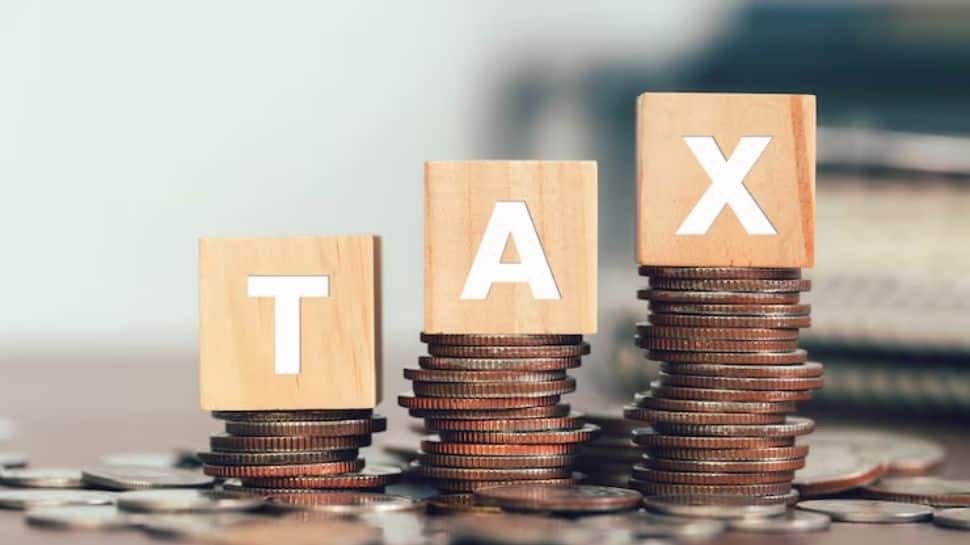
New Delhi: February 2026 brings a series of important deadlines related to Tax Deducted at Source (TDS) that taxpayers and deductors should not overlook. From issuing TDS certificates to submitting mandatory statutory forms, these compliance dates play a key role in ensuring smooth and accurate tax reporting. Businesses, employers, and government offices must stay alert and complete the required filings on time to avoid penalties or complications under the Income-tax Act. Keeping track of these dates can help ensure hassle-free compliance and prevent last-minute stress.
February 14:
– Deadline for issuing TDS certificate under Section 194-IA for tax deducted on transfer of immovable property in December 2025.
– Deadline for issuing TDS certificate under Section 194-IB for tax deducted on rent paid by individuals or HUFs in December 2025.
– Deadline for issuing TDS certificate under Section 194M for tax deducted on contractual or professional payments made in December 2025.
– Deadline for issuing TDS certificate under Section 194S for tax deducted on transfer of virtual digital assets by specified persons in December 2025.
February 15:
– Deadline for government offices to furnish Form 24G where TDS/TCS for January 2026 was deposited without generating a challan.
– Deadline for issuing the quarterly TDS certificate for non-salary payments for the quarter ended December 31, 2025.
Business
Musk’s net worth soars past $800 billion after SpaceX‑xAI deal

New Delhi: US entrepreneur Elon Musk’s net worth surged past the $800 billion mark after SpaceX acquired his artificial‑intelligence firm xAI, making him the richest person in history by a wide margin.
Musk’s net worth reached roughly $852 billion, almost $578 billion higher than the world’s second-wealthiest person, Google co-founder Larry Page, whose net worth is estimated at $281 billion.
The merger took the combined value of the company to $1.25 trillion and added about $84 billion to Musk’s fortune, according to reports.
Before the merger, Musk owned about 42 per cent of SpaceX which was valued at $800 billion and roughly 49 per cent of xAI, which was valued at $250 billion after a recent private fundraising round. Post‑merger, Musk’s stake in the combined entity touched 43 per cent, worth about $542 billion and SpaceX became Musk’s largest holding by a wide margin, the reports said.
Musk also retains about 12 per cent of Tesla, valued at approximately $178 billion, along with Tesla stock options, estimated at $124 billion. Further, in addition to these, Musk also receives a shareholder‑approved Tesla pay package up to $1 trillion in additional Tesla stock, before taxes over the next decade and the cost of unlocking restricted shares, if performance targets are met.
He crossed several wealth milestones in the past four months such as $500 billion, $600 billion and $700 billion, driven by SpaceX valuation gains and a Delaware Supreme Court ruling that restored his Tesla options.
Musk earlier said that SpaceX’s Starship will begin delivering the much more powerful V3 Starlink satellites to orbit in 2026, with each launch adding more than 20 times the capacity to the constellation as the current Falcon launches of the V2 Starlink satellites.
It will enable launches “every hour carrying 200 tons per flight” and ultimately lifting millions of tons to orbit and beyond, Musk has shared his plan.
Starship will also launch the next generation of direct-to-mobile satellites, which will deliver full cellular coverage everywhere on Earth, he added.
-

 Sports1 week ago
Sports1 week agoPSL 11: Local players’ category renewals unveiled ahead of auction
-

 Entertainment1 week ago
Entertainment1 week agoClaire Danes reveals how she reacted to pregnancy at 44
-

 Sports1 week ago
Sports1 week agoCollege football’s top 100 games of the 2025 season
-

 Business1 week ago
Business1 week agoBanking services disrupted as bank employees go on nationwide strike demanding five-day work week
-

 Politics1 week ago
Politics1 week agoTrump vows to ‘de-escalate’ after Minneapolis shootings
-

 Sports1 week ago
Sports1 week agoTammy Abraham joins Aston Villa 1 day after Besiktas transfer
-

 Entertainment1 week ago
Entertainment1 week agoK-Pop star Rosé to appear in special podcast before Grammy’s
-

 Tech1 week ago
Tech1 week agoBrighten Your Darkest Time (of Year) With This Smart Home Upgrade




